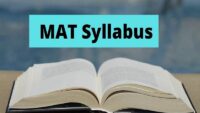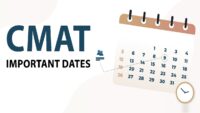 The Northern India Institute of Fashion Technology (NIIFT) is a famous design institute established in 1995. It holds a national-level entrance exam called the NIIFT to accept students into its full-time undergraduate and postgraduate design programs every year. Due to the COVID-19 pandemic, the NIIFT 2023 examination was conducted online in pectoral mode this year.
The Northern India Institute of Fashion Technology (NIIFT) is a famous design institute established in 1995. It holds a national-level entrance exam called the NIIFT to accept students into its full-time undergraduate and postgraduate design programs every year. Due to the COVID-19 pandemic, the NIIFT 2023 examination was conducted online in pectoral mode this year.
The following is the list of undergraduate and postgraduate programs offered by NIIFT.
| Programs |
| Bachelor of Design (B. Des) |
| Bachelor of Fashion Technology (B.F. Tech) |
| Master of Design (M. Des) |
| Master of Fashion Technology (M.F. Tech) |
| Master of Fashion Management (M.F.M.) |
Students must pass written tests such as the CAT (Creative Aptitude Test) and the GAT (General Aptitude Test) to be accepted into the programs mentioned above at NIIFT. Eligible candidates for B. Des and M. Des must pass both the CAT and the GAT, whereas candidates for B.F. Tech, M.F. Tech, and M.F.M. must only pass the GAT. Each of these programs, however, has a separate exam structure. Applicants must familiarise themselves with the revised NIIFT syllabus and determine the topics they should concentrate on before applying for the next batch. Continue reading this article to learn more about the NIIFT revised syllabus.
Table of Contents
NIFT Revised Syllabus 2023
The syllabus for the CAT exam is conducted both for B. Des and M. Des candidates to assess their intuitive aptitude, capacity for observation, concept generation, and design ability. The imaginative and innovative use of colour and artistic skills is a key part of the test. After passing the CAT exam, B. Des and M. Des applicants can take the GATE exam, which is required for all the other programs.
The syllabus for the GATE exam is common for all the programs and includes-
- Quantitative ability: This subtest is intended to assess the candidates’ quantitative abilities. It includes questions on quantitative math such as addition, multiplication, division, fractions, per cent, rate of interest, work and task, ratio and proportion, and distance.
- Communication ability and English comprehension: This is designed to assess the ability of candidates to communicate in English on a daily basis. Questions on synonyms, antonyms, words with comparable meanings, singular, plural, one-word substitutions, correct spellings, idioms, phrases, comprehensive passages, and so on are included.
- Analytical and logical ability: This sub-exam is designed to evaluate the candidate’s ability to identify the provided problem and apply reasoning in solving the main concerns of the problem, as well as to test the candidate’s capacity for inference and logic from the given information. Creative and lateral thinking concepts and practices are also included in the test.
- General knowledge and current affairs: This subtest is designed to test the general knowledge and current affairs of the applicants.
- Case study: This subtest is used to assess a candidate’s managing abilities, particularly in scenarios that occur in an industrial setting.
In the case of B. Des, the shortlisted candidates are required to take another test known as the situation test. This test is a hands-on assessment of a candidate’s material handling and inventive abilities in a specific situation with a given set of materials (use of outside material is not allowed). The jury judges the model made by the candidates on the spot for their ability to visualize space, creative use of the given material, color scheme used, composition of elements, construction expertise, refinement, and overall presentation, among other things. These parameters are double-checked against the written explanation of the model’s concept by the candidate, which should be only in English.
Candidates for B.F. Tech are selected only based on their GAT exam scores, whereas candidates for M. Des, M.F. Tech, and M.F.M. must go through additional rounds of group discussions (GD) and personal interviews (PI).
The Syllabus for GD
GD consists of 15 to 20 minutes of case study-based discussion in groups on an assigned case study. The candidates are then evaluated by a panel of experts on criteria such as:
1) Communication skills
2) Contributions made to the topic
3) Knowledge of the topic assigned
4) Leadership qualities
5) Conceptual clarity
6) Problem-solving capacity
7) Interpersonal skills
8) Ability to generate novel ideas
Syllabus for PI
PI round evaluates candidates on several parameters like:
- Orientation to a career
- Course suitability
- The ability to communicate
- Awareness and aptitude in general, as well as creative and lateral thinking




